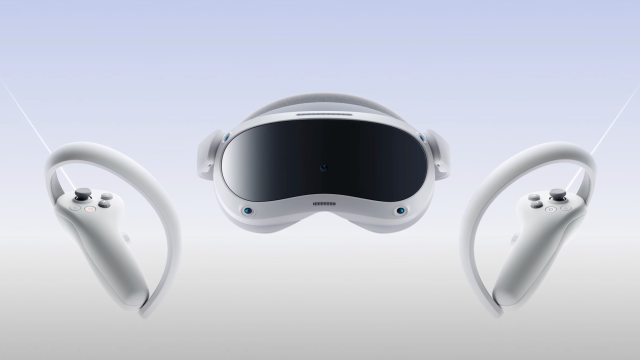Rumors of the metaverse’s death overseas may have been a bit premature, even as headset-maker Pico seems to be in the doldrums of a rather anticlimactic year in VR. Word on the street was that ByteDance, the China-based company best known as the owner of TikTok, was looking to get out of the virtual reality game.
ByteDance planned to eventually “abandon” Pico VR, according to research firm EqualOcean on Saturday. The firm claimed based on unnamed sources that “the person in charge” of Pico—perhaps referring to CEO and founder Jarrod Yuster—visited ByteDance’s headquarters where founder Zhang Yiming told him the company planned to eventually abandon its VR initiatives.
As noted first by Reuters, another report from Chinese outlet The Paper claimed Pico had gone through turnover on nearly half the unit’s staff, and that execs were also being moved away from ByteDance’s VR arm. The company already laid off somewhere around 200 employees from Pico back in February.
ByteDance told Reuters that OpenOcean’s report “is not true.” The TikTok owner still plans to “invest in the extended reality (XR) business over the long term.” Additionally, the company said it would “maintain the normal operation of the product and continue to enhance the investment in product technology,” seeming to refer to Pico and VR.
Gizmodo reached out to ByteDance for comment and additional clarification, but we didn’t immediately hear back.
ByteDance bought Pico, which at the time was the world’s largest VR headset maker, back in 2021. A year later, the company revealed its Pico 4 headset that was meant to compete directly with Meta in the cheap-to-midrange VR space. It also revealed last year its Pico 4 Enterprise, a suped-up version of the Pico 4 designed for all those businesses that are considering what the world would look like if employees worked with VR headsets strapped to their heads for hours on end.
Pico has yet to reveal any new hardware since those announcements. The company shared a few bundle prices and OpenXR interoperability for more devs to build VR apps for Pico, but 2023 has been a year with very few surprises from what was once considered one of Meta’s biggest competitors in the VR space.
Meta showed off its newest $US500 Quest 3 headset supporting both virtual reality and augmented reality through full-color passthrough last month. Apple also jumped into the fray with its Vision Pro headset set to release next year. That new “spatial computer,” as the Tim Cook-led company keeps trying to call it, is gearing up to be the company’s most complicated product launch in its history. Buyers will need to set up appointments to get fitted for one, and Apple store employees are reportedly getting extra training for how to sell the $US3,500 headset.
